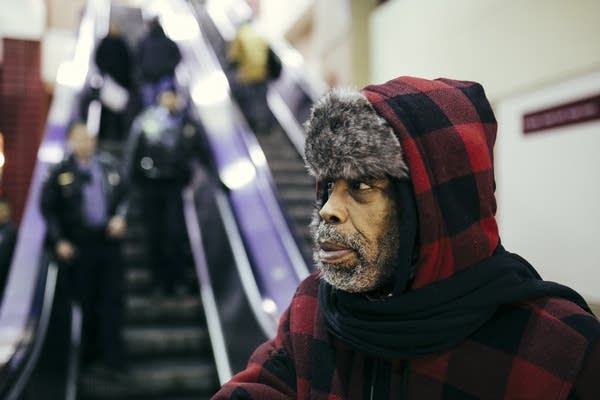Super Bowl disruptions more than just annoyance for Mpls. homeless residents

Gregory Graham warms up inside Metro Transit's 7th Street garage in Minneapolis on Friday, Feb. 2. Graham said the changes to public transit because of the Super Bowl have caused him the biggest hassle.
Evan Frost | MPR News
Go Deeper.
Create an account or log in to save stories.
Like this?
Thanks for liking this story! We have added it to a list of your favorite stories.


